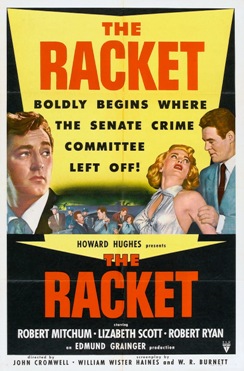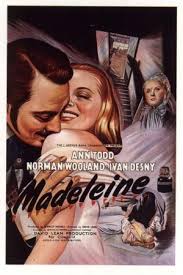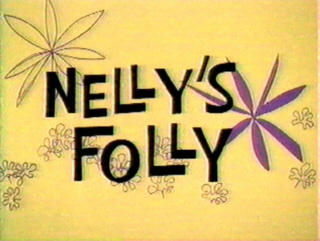Related Research Articles

United Productions of America, better known as UPA, was an American animation studio and later distribution company founded in 1941 as Industrial Film and Poster Service by former Walt Disney Productions employees. Beginning with industrial and World War II training films, UPA eventually produced theatrical shorts for Columbia Pictures such as the Mr. Magoo series. In 1956, UPA produced a television series for CBS, The Boing-Boing Show, hosted by Gerald McBoing Boing. In the 1960s, UPA produced syndicated Mr. Magoo and Dick Tracy television series and other series and specials, including Mister Magoo's Christmas Carol. UPA also produced two animated features, 1001 Arabian Nights and Gay Purr-ee, and distributed Japanese films from Toho Studios in the 1970s and 1980s.
Arthur Harold Babitsky, better known as Art Babbitt, was an American animator, best known for his work at Walt Disney Animation Studios. He received over 80 awards as an animation director and animator, and also developed the character of Goofy. Babbitt worked as an animator or animation director on films such as Snow White and the Seven Dwarfs, Pinocchio, Fantasia and Dumbo, among others. Outside of Disney, he also animated The Wise Quacking Duck for Leon Schlesinger Productions.

Droopy is an animated character from the golden age of American animation. He is an anthropomorphic white Basset Hound with a droopy face; hence his name. He was created in 1943 by Tex Avery for theatrical cartoon shorts produced by the Metro-Goldwyn-Mayer cartoon studio. Essentially the polar opposite of Avery's other MGM character, the loud and wacky Screwy Squirrel, Droopy moves slowly and lethargically, speaks in a jowly monotone voice, and—though hardly an imposing character—is shrewd enough to outwit his enemies. When finally roused to anger, often by a bad guy laughing heartily at him, Droopy is capable of beating adversaries many times his size with a comical thrashing.

Foster's Home for Imaginary Friends is an American animated television series created by Craig McCracken for Cartoon Network. It was produced by Cartoon Network Studios as the network's first show animated primarily with Adobe Flash, which was done both by Cartoon Network Studios in Burbank and in Ireland by Boulder Media. Set in a world in which imaginary friends coexist with humans, it centers on a boy named Mac who is pressured by his mother to abandon his imaginary friend Bloo. After the duo discover an orphanage dedicated to housing abandoned imaginary friends, Bloo moves into the home and is kept from adoption as long as Mac visits him every day at exactly 3:00 PM. The episodes revolve around Mac and Bloo as they interact with other imaginary friends and house staff and live out their day-to-day adventures, often getting caught up in various predicaments.

Drawn Together is an American adult animated sitcom created by Dave Jeser and Matt Silverstein for Comedy Central. It premiered on October 27, 2004. The series is a parody of house-based reality shows such as The Real World, The Surreal Life, and Big Brother, and follows the misadventures of the housemates in the fictional show of the same name and uses a sitcom format with a reality TV show setting.

John Kirkham Hubley was an American animated film director, art director, producer, and writer known for his work with the United Productions of America (UPA) and his own independent studio, Storyboard, Inc.. A pioneer and innovator in the American animation industry, Hubley pushed for more visually and emotionally complex films than those being produced by contemporaries like the Walt Disney Company and Warner Brothers Animation. He and his second wife, Faith Hubley, who he worked alongside from 1953 onward, were nominated for seven Academy Awards, winning three.

Tom and Jerry: The Movie is a 1992 American animated musical comedy film based on the characters Tom and Jerry created by William Hanna and Joseph Barbera. It was produced and directed by Phil Roman, with a screenplay written by Dennis Marks, who also scripted some episodes of the then-airing Tom & Jerry Kids television series. He film-stars the voices of Richard Kind, Dana Hill, Anndi McAfee, Tony Jay, Rip Taylor, Henry Gibson, Michael Bell, Ed Gilbert, David L. Lander, Howard Morris, and Charlotte Rae.

Melody Time is a 1948 American live-action and animated musical anthology film produced by Walt Disney. It was released to theatres by RKO Radio Pictures on May 27, 1948. Made up of seven segments set to popular music and folk music, the film is, like Make Mine Music before it, the popular music version of Fantasia. Melody Time, while not meeting the artistic accomplishments of Fantasia, was mildly successful.

Alpha Dog is a 2006 American crime drama film written and directed by Nick Cassavetes. It is based on the true story of the kidnapping and murder of Nicholas Markowitz in 2000. The film features an ensemble cast that includes Ben Foster, Shawn Hatosy, Emile Hirsch, Christopher Marquette, Sharon Stone, Justin Timberlake, Anton Yelchin, and Bruce Willis.

Frankie and Johnny is a 1966 American Western musical film starring Elvis Presley as a riverboat gambler. The role of "Frankie" was played by Donna Douglas from The Beverly Hillbillies TV series. The film reached #40 on the Variety weekly national box office list for 1966. The budget of the film was estimated at $4.5 million. The director was Frederick De Cordova, who in 1970 went on to become the director and producer of The Tonight Show Starring Johnny Carson.

The Racket is a 1951 black-and-white film noir drama directed by John Cromwell with uncredited directing help from Nicholas Ray, Tay Garnett, and Mel Ferrer. The production features Robert Mitchum, Lizabeth Scott, Robert Ryan, and William Conrad. Future Perry Mason regular cast members William Talman and Ray Collins appear in key roles.

The Lonesome Jubilee is the ninth studio album by American singer-songwriter John Mellencamp, credited as John Cougar Mellencamp. The album was released by Mercury Records on August 24, 1987. Four singles were released from the album, the first two in 1987 and the last two in 1988.
"Frankie and Johnny" is a murder ballad, a traditional American popular song. It tells the story of a woman, Frankie, who finds her man Johnny making love to another woman and shoots him dead. Frankie is then arrested; in some versions of the song she is also executed.

Madeleine is a 1950 British film noir directed by David Lean, based on a true story of Madeleine Smith, a young Glasgow woman from a wealthy family who was tried in 1857 for the murder of her lover, Emile L'Angelier. The trial was much publicised in the newspapers of the day and labelled "the trial of the century". Lean's adaptation of the story starred his wife, Ann Todd, with Ivan Desny as her character's French lover. Norman Wooland played the respectable suitor and Leslie Banks the authoritarian father, both of whom are unaware of Madeleine's secret life. Lean made the film primarily as a "wedding present" to Todd, who had previously played the role onstage. He was never satisfied with the film and cited it as his least favourite feature-length movie.

Decoy is a 1946 American film noir starring Jean Gillie, Edward Norris, Robert Armstrong, Herbert Rudley, and Sheldon Leonard. Directed by Jack Bernhard, it was produced by him and Bernard Brandt as a Jack Bernhard Production, with a screenplay by Nedrick Young based on an original story by Stanley Rubin.

Nelly's Folly is a 1961 Warner Bros. Merrie Melodies cartoon short written and directed by Chuck Jones about a singing giraffe who leaves the jungle to pursue a singing career, but finds herself lonely and out of work following an affair. The short was released on December 30, 1961.

Annette Warren is an American vocalist and popular jazz stylist who dubbed the singing voices of such stars as Lucille Ball in Sorrowful Jones (1949) and Fancy Pants (1950), and Ava Gardner in the 1951 film version of Show Boat. She was still actively performing in 2017 at the age of 95.
Events in 1951 in animation.
References
- ↑ Scott, Keith (2022). Cartoon Voices from the Golden Age, 1930-70. BearManor Media. p. 178. ISBN 979-8-88771-010-5.
- ↑ Noir Catoons at the Academy|Cartoon Brew
- ↑ FilmAffinity
- ↑ TCM.com
- ↑ Cartoons Considered For An Academy Award – 1951|Cartoon Research
- ↑ Beck, Jerry (1994). The 50 Greatest Cartoons: As Selected by 1,000 Animation Professionals. Turner Publishing. ISBN 978-1878685490.